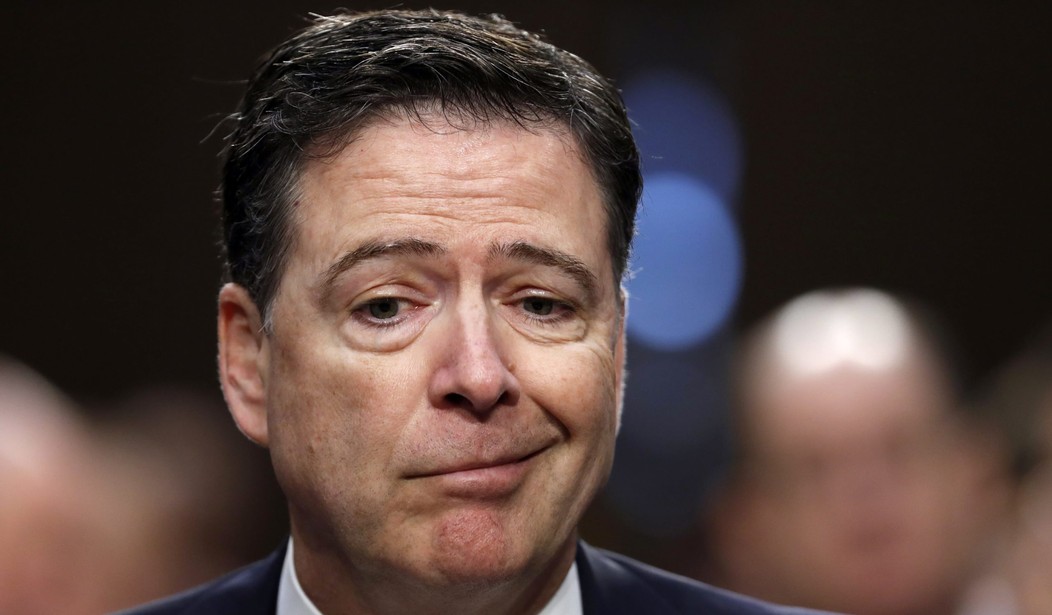Despite earlier claims that the discredited Steele Dossier played no role in the launching of the FBI investigation into alleged collusion between the Trump campaign and Russia, an examination of available testimony by the Washington Times suggests otherwise. Based on the available evidence, it appears that Christopher Steele’s bogus allegations were, in fact, available to key players in the FBI prior to the launch of the investigation into the bogus Trump-Russia conspiracy theory—contradicting claims by former FBI Director James Comey, and former FBI general counsel James A. Baker. Comey had explicitly ruled out the possibility that the dossier had been the FBI’s possession when the investigation was launched in his memoir, “A Higher Loyalty” He wrote, “The information that triggered it was the Papadopoulos information that came in late July. The FBI didn’t get any information that’s part of the so-called Steele dossier, as I understand it, until after that. And so the investigation was triggered entirely separately from the Steele dossier.”
The Washington Times states, “There is evidence that dossier material arrived before July 31.”
Mr. Steele beseeched Rome-based FBI agent Michael J. Gaeta to visit London in early July 2016 to hear his sensational allegations against candidate Trump. Mr. Gaeta won trip approval from Victoria Nuland, who was assistant secretary of state.
Mr. Gaeta arrived at Mr. Steele’s Orbis Business Intelligence office in London on July 5 and was greeted with horror stories. Mr. Steele handed him dossier pages. FBI practice would be for Mr. Gaeta to fill out a Form 302 containing Mr. Steele’s charges and circulate it to headquarters in Washington.
According to Nuland, she was given several dossier pages that month and instructed staff to give the documents to the FBI. “This needs to go to the FBI if there is any concern here that one candidate or the election as a whole might be influenced by the Russian Federation,” Nuland said on CBS’s “Face The Nation.” “That’s something for the FBI to investigate. And that was our reaction when we saw this. It’s not our — we can’t evaluate this.”
Glenn R. Simpson, co-founder of opposition Fusion GPS, who was also a paid agent of the Clinton campaign, testified before the House Permanent Select Committee on Intelligence that in early July he gave Mr. Steele permission to start talking to the FBI.
“And by approximately early July, like 1st or 2nd, I had given my assent to him doing it as a professional obligation or a citizenship obligation. And then that’s when he did it, sometime around the Fourth of July,” Mr. Simpson testified.
Question: “So in early July, is it fair to say in early July that you knew that Mr. Steele had taken some information to the FBI?”
Answer: “I think he said he was going to, and then later he told me he did.”
A House Republican staffer told The Washington Times: “We have genuine concern Steele and Simpson were trying to fool the FBI into investigating Trump much earlier than the public testimony suggests. This is one of the big questions John Durham is looking into.”
The Washington Times also reports that “Although Mr. Strzok officially began the investigation on July 31, events indicate it started earlier, perhaps as a preliminary inquiry.”
Mr. Steele began work for the Democrats, through Fusion GPS, in mid-June.
His first dossier memo, one of 17 completed in December 2016, is dated June 20. Mr. Steele’s Kremlin intelligence operatives were his sources. Mr. Steele said Mr. Trump was a Moscow informant and was receiving regular dirt on Hillary Clinton.
Mr. Mueller, assigned to find “any links” between Trump associates and the Kremlin, found no such relationship.
Mr. Steele’s July 19 memo alleged a Trump-Russia “extensive conspiracy.” It said that during Mr. Page’s public speaking engagement in Moscow he had discussed bribes for sanctions relief.
As we all know, The Mueller report found no conspiracy. The whole Trump-Russia narrative was a hoax.
The key link was Bruce Ohr, then an associate deputy attorney general at the Justice Department. Mr. Ohr testified that he met with Mr. Steele in Washington on July 30, 2016, talked with him via social media and ferried the information directly to FBI headquarters. His first stop was then-Deputy Director Andrew McCabe and Ms. Page in August.
Mr. McCabe launched a counterintelligence investigation into Mr. Trump in May 2017, shortly after the president fired Mr. Comey.
How the dossier’s unfounded allegations of a Trump-Kremlin relationship influenced that decision is not known publicly. In his memoir “The Threat,” Mr. McCabe avoided any dossier discussion to include his role.
He has suggested that Mr. Trump was a Russian agent — a supposed relationship not found by Mr. Mueller.
A DOJ Inspector General’s investigation report of potential abuse of the Foreign Intelligence Surveillance Act is due out later this year. The surveillance applications relied heavily on the Steele dossier.










Join the conversation as a VIP Member